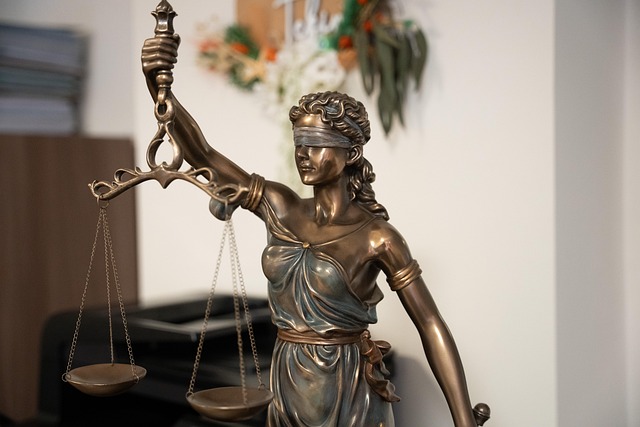Post-conviction proceedings offer individuals convicted of crimes a second chance to challenge their convictions through motions like petitions for habeas corpus, with skilled criminal defense attorneys guiding clients. Defendants have a fundamental right to appeal, aiming for a reversal or modification of their judgment, crucial for due process and justice. Legal representation is vital, as organizations and public defenders advocate for prisoners' rights, ensuring fairness and challenging miscarriages of justice. Expungement and record sealing options reclaim dignity post-conviction, enabling a fresh start with enhanced rights during these proceedings.
“Criminal law enforcement involves a complex web of post-conviction processes aimed at ensuring justice and fairness. This article guides you through critical aspects of these proceedings, focusing on understanding the rights of defendants and prisoners during this period.
We’ll explore key topics such as post-conviction appeals, access to legal representation, record expungement, and sealing information, offering insights into how individuals can navigate these processes to restore their rights.”
- Understanding Post-Conviction Proceedings: An Overview
- The Right to Appeal: When and How Defendants Can Challenge Their Convictions
- Rights of Prisoners: Access to Legal Representation and Fair Treatment During Post-Conviction Reviews
- Expunging Records and Sealing Information: Restoring Rights After Criminal Convictions
Understanding Post-Conviction Proceedings: An Overview

Post-conviction proceedings are a crucial phase in the criminal justice system, offering individuals convicted of crimes an opportunity to challenge their convictions and seek relief. This process provides a second chance for those who believe errors occurred during their trial or who have new evidence that could potentially alter the outcome. Understanding these proceedings is essential for anyone involved in or affected by the criminal justice process, especially when considering rights during post-conviction actions.
In many jurisdictions, convicted persons can file various motions, such as petitions for habeas corpus, to set aside their convictions and sentences. These proceedings allow them to present arguments, offer new evidence, or challenge the constitutionality of their trial. A skilled general criminal defense attorney plays a vital role in guiding clients through this intricate process, ensuring their rights are protected. High-stakes cases often hinge on navigating these post-conviction stages, where the outcome can significantly impact an individual’s life and freedom, especially when facing serious charges or avoiding indictment.
The Right to Appeal: When and How Defendants Can Challenge Their Convictions

Defendants have a fundamental right to appeal their convictions, providing an essential safeguard during post-conviction proceedings. This process allows individuals to challenge their guilt and ensures fairness within the criminal justice system. An appeal is typically initiated after a verdict, where a defendant’s attorney can present arguments and evidence to a higher court, aiming for a reversal or modification of the original judgment.
Understanding the right to appeal is crucial throughout all stages of the investigative and enforcement process. A well-crafted appeal strategy can lead to winning challenging defense verdicts, including the complete dismissal of all charges. This right serves as a critical component of due process, enabling defendants to seek justice and protect their liberties even after an initial conviction.
Rights of Prisoners: Access to Legal Representation and Fair Treatment During Post-Conviction Reviews

In the realm of criminal law enforcement, ensuring fair treatment for prisoners during post-conviction reviews is paramount. One of the fundamental rights of prisoners is access to legal representation, which plays a pivotal role in safeguarding their interests and providing them with a voice within the justice system. This right is crucial, especially when facing potentially life-altering outcomes such as the complete dismissal of all charges. Across the country, legal aid organizations and public defenders are dedicated to assisting inmates, offering both expertise and advocacy during these critical proceedings.
The process involves meticulous review of evidence, questioning witness testimonies, and constructing robust legal arguments on behalf of prisoners. This thorough approach ensures that every aspect of the case is examined, promoting justice and fairness. Moreover, it enables prisoners, whether corporate or individual clients, to have their voices heard and to challenge any potential miscarriages of justice, ultimately contributing to a more equitable criminal justice system.
Expunging Records and Sealing Information: Restoring Rights After Criminal Convictions

After a criminal conviction, individuals often seek to move forward with their lives, restoring their rights and turning over a new leaf. This process begins with understanding the potential for expunging records and sealing information. Expungement allows for the removal of certain criminal records from public view, essentially erasing them as if they never existed. Sealing, on the other hand, restricts access to these records while still allowing law enforcement and relevant agencies to retrieve them when necessary. This is a crucial aspect of rights during post-conviction proceedings, enabling individuals to reclaim their freedom and dignity.
For those involved in white collar defense or facing charges across all stages of the investigative and enforcement process, knowing these options can be instrumental in achieving favorable outcomes. By navigating these legal procedures successfully, individuals can win challenging defense verdicts and secure a fresh start, free from the lifelong stigma associated with criminal convictions.
In navigating the intricate landscape of criminal law enforcement, understanding post-conviction proceedings is paramount. By grasping the rights of both defendants and prisoners during these processes, we can ensure fair treatment and the potential restoration of rights through expunging records or sealing information. Knowing when and how to appeal plays a crucial role in challenging convictions, while access to legal representation is essential for all involved. These aspects collectively contribute to a robust system that balances justice with redemption and second chances.






